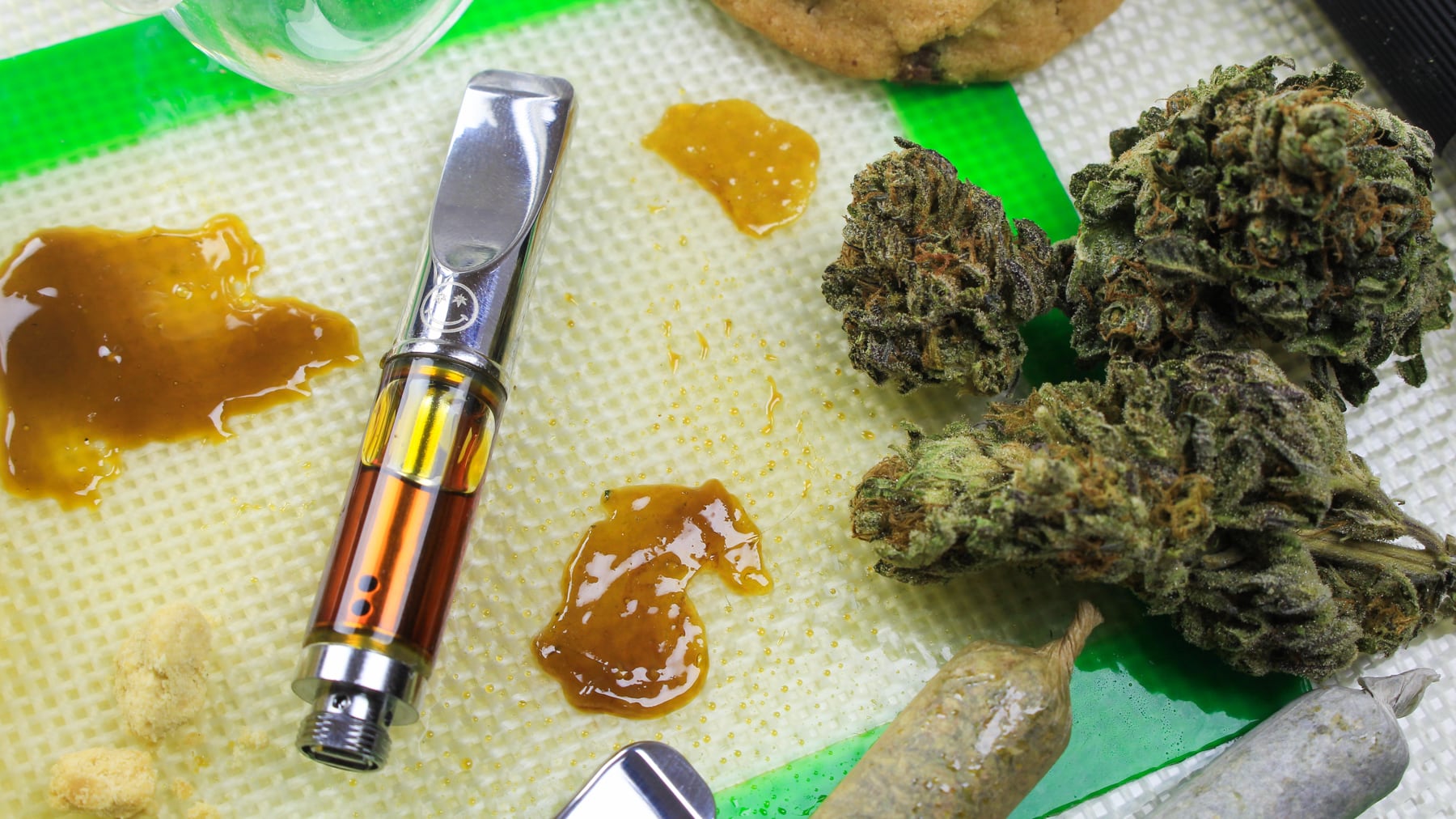Two weeks after the Oregon Court of Appeals halted Gov. Kate Brown's ban on flavored nicotine vaping products, a cannabis distributor has filed a lawsuit challenging the ban on flavored weed vapes.
The motion to stay the ban was filed with the court of appeals this morning by Herban Industries Oregon, which operates as DYME Distribution and is a major cannabis distributor that operates in several states, including Oregon. It's the sole distributor of the cartridge brand Winberry Farms—one of the dominant flavored cartridge manufacturers in Oregon.
The court of appeals must now decide whether DYME Distribution, which is seeking judicial review of the Oregon Liquor Control Commission's rules and a temporary hold on the rules in the meantime, has provided proof that the ban has caused irreparable harm to its business.
Andrew DeWeese, a lawyer with the Green Light Law Group, tells WW that the petition for review asks the court to "find that the rule-making procedure that the OLCC went through was procedurally defective—meaning that the agency didn't adequately justify using the temporary (expedited) rule-making process it used, and therefore the temporary rule banning flavored vape products is invalid and unenforceable."
DeWeese says his client is requesting that a temporary hold be put on the OLCC rules while "our challenges to the rule's validity are briefed and argued."
The stay requested by today's plaintiff follows a pattern set by the nicotine plaintiffs two weeks prior: Both groups have argued that the ban will cause irreparable harm to their businesses. That's the sole criteria necessary for the court of appeals to grant a temporary stay until the ban undergoes judicial review.
The motion argues that the OLCC did not have the authority to implement the rules they did.
"To state it plainly, there is simply no evidence to support the commission's decision to prohibit flavored cannabis vaping products," the lawsuit says. "This defect alone renders the vaping prohibition an invalid exercise of agency rulemaking authority, although the court need not wade into these issues to stay enforcement."
The governor's ban followed a wave of respiratory illnesses and the deaths of two Oregon residents who died after purchasing vaping products from cannabis dispensaries. But the decision by the OLCC to include in the ban botanical flavors—any terpenes derived from plants other than cannabis—sparked widespread outrage in the cannabis industry.
Winberry Farms makes both flavored cartridges and unflavored cartridges.
The motion claims that DYME Distribution has lost 80 percent of its overall revenue since the executive order was announced. In addition, the motion claims that the new rules have damaged relationships with retailers who want DYME to buy back products that are now prohibited.
"DYME has been contacted by numerous retailers requesting that DYME buy back Winberry Farms branded cartridges or extend credits—which DYME cannot afford to do with the enormous revenue deficit created by the temporary rule. One retailer in particular has demanded an immediate payment of $45,000," the motion reads.

